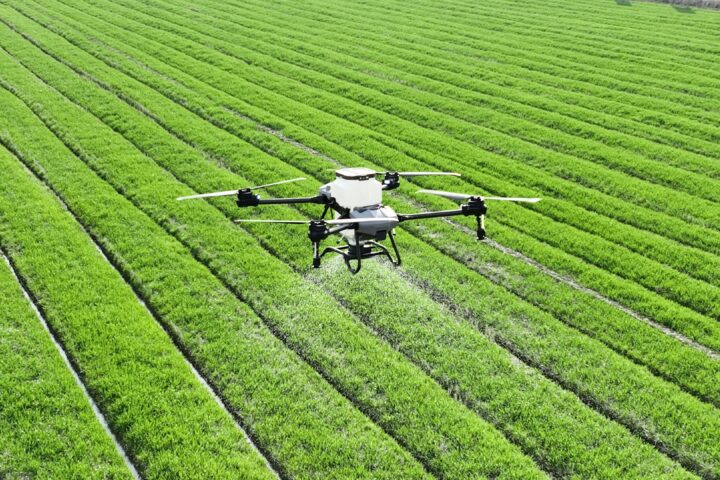
Agricultural production in the EU to drop by 20 percent
The European Green Deal would reduce the amount of agricultural production in the EU and lower farmers’ incomes. At the same time, the EU would import more agricultural goods, and consumers would pay higher prices. Moreover, land use would increase in the rest of the world. This has been confirmed by several studies.
Friday, October 15, 2021
The EU’s Green Deal sets ambitious environmental goals that would also affect the agriculture sector. For agriculture, the main components of the Green Deal are the Farm to Fork (F2F) and biodiversity (BD) strategies. Pesticide use in agriculture is to be cut in half by 2030. The strategy also seeks to reduce the use of fertilizers, lower CO2 emissions and protect biodiversity (cf. box on the Farm to Fork strategy).
Farm to Fork would lower production
Highly regarded Wageningen University has used detailed case studies to examine how the Green Deal would affect agricultural production in the EU. The study’s initial results were recently published, and. according to Professor Johan Bremmer, the study shows that the F2F strategy would lower agricultural production in the EU. On average, a reduction of between 10 and 20 percent is expected. If the F2F and biodiversity strategies are fully implemented, production of individual crops could decline by as much as 30 percent – in the case of wheat by 18 percent, with prices rising by only 3 percent – and we could see dramatic price increases, such as for wine. “Reduced production would lead to higher prices, fewer European exports and more agricultural products imported from other countries.” Production value could decline by more than EUR 140 billion, and agricultural income could plummet.
Quality issues and supply shortages
As the study’s authors point out, a reduction in the use of pesticides can also lead to quality issues: “For example, if fewer pesticides are used, grain can become susceptible to fungal toxins, making it unsuitable as food or feed.” (Note from the editorial team). This is a reference to the carcinogenic effect of mycotoxins, which pose a threat to health. The EU’s Farm to Fork strategy would also have an impact on consumer prices. The study predicts shortages of high-quality products, coupled with higher prices for consumers. The EU balance of trade would also be affected. Imports – in particular corn and rapeseed – would greatly increase, perhaps even doubling in size. Lowering agricultural production reduces exports and increases imports. More imports from outside the EU increases land use in the rest of the world.
Dubious benefits to the environment
Although the study did not look at environmental effects, it is evident that increased land use outside the EU is putting stress on unused areas in the rest of the world. This raises the question of how the environment would benefit if production moves to other parts of the world. Even if CO2 levels were to decline in the EU, production in other areas of the world and the global supply chain release CO2 as well. The study’s authors call on the EU to think more seriously about negative trade-offs. They also point to the role of research in dealing more successfully with negative effects. In particular, they argue for removing obstacles to new breeding methods, such as gene editing.
An increase in imports and environmental impacts abroad
The initial results of the Wageningen study confirm what earlier studies have shown about the negative impacts of the Green Deal on agriculture in the EU. A study conducted by the Joint Research Center of the EU (JRC) has shown that it is not only production that would move abroad, but environmental damage would as well. This is a perversion of the original environmental goals of Farm to Fork. With the EU’s agricultural exports declining, imports would increase. These results have been confirmed and expanded upon by a related study at Kiel University. As the study’s director, Prof. Henning, points out, “While these measures would improve ecosystem services in the EU, they would not achieve the desired positive effect on the global climate. The predicted reductions in greenhouse gases (GHGs) resulting from a decrease in European agricultural production would be entirely canceled out by an increase in GHG emissions from agricultural activity outside the EU, as well as by a shift in land use within the EU.” Furthermore, he points out, the study shows that “if the Farm to Fork strategy goes into effect, the EU would no longer be a grain exporter, but a grain importer instead. This is why sound judgment and compromise are needed to reconcile the need for food production with the need to ensure that species, water resources and the climate are protected. A study by the United States Department of Agriculture (USDA) predicts that agricultural production in the EU would drop by 12 percent, while prices would rise by 17 percent. At the same time, farmers would see their incomes decline by 16 percent.
The food security of 22 million people is at risk
The US study also clearly shows the global impact of an EU decision to reduce agricultural production. Global prices would increase by 9 percent, and the food security of 22 million people would be at risk, because the EU would import more agricultural goods. A decrease in agricultural production within the EU therefore poses a threat to supply security elsewhere and raises the specter of hunger. A misguided policy can have dramatic consequences. As for food prices, the UN Food and Agriculture Organization (FAO) reports that prices have increased by 10 percent already this year.
According to a report in the newspaper “Schweizer Bauer,” it is not only researchers who are calling for better estimates of the impact of the Green Deal. Several EU member states are also skeptical about assigning agriculture a more important role in efforts to protect the climate. “Poland, the Czech Republic, Hungary, Romania and Slovakia have all stressed that the need to protect the climate must not lead to limitations on agricultural production or to higher food prices.”
A comprehensive perspective is needed
The EU Commission is assessing the consequences of regulations, and this is also in Switzerland’s interest; after all, we import 50 percent of our food, much of that from EU countries. However, Switzerland should be inspired by the EU’s example to take a look at its own regulations. The AP22+ reform has been suspended in Switzerland – thankfully, since it is animated by the same spirit as its European counterpart, the Farm to Fork strategy. But despite the fact that parliamentary initiatives have been adopted in place of AP22+, with directives for their implementation, it is important to note that significant changes are being made without assessing the impact of the relevant regulations and without fully understanding their economic, environmental and social consequences. The result is this: Agricultural productivity is declining, environmental impacts are shifting from one place to another, and imports and consumer prices are increasing.
The EU’s Farm to Fork strategy
“Schweizer Bauer” summarizes the EU’s Farm to Fork strategy in these words: “Through the Farm to Fork strategy, the EU Commission is setting goals for reductions in agriculture. By 2030, the use and risks of chemical pesticides are to be lowered by 50 percent. The use of more dangerous pesticides is to drop by 50 percent. In addition, nutrient losses are to be reduced by at least 50 percent, while ensuring that there is no decline in soil fertility. This will reduce the use of fertilizers by at least 20 percent by 2030. By 2030, 25 percent of Europe’s agricultural land is to be organically farmed. The overall sales of antimicrobial products for livestock and aquaculture in the EU are to decline by 50 percent by 2030.”
Related articles

Pesticides in Green Smoothies
After countless recipes for Christmas cookies, festive roasts and cocktails, the advice on losing weight, detoxing and beautifying oneself now takes centre stage. Most of it is sheer nonsense.

Natural Toxins: An Underestimated Risk in Our Food
Safe food cannot be taken for granted. While chemical substances are often the focus of public criticism, reality shows that the greatest risks to food safety are of natural origin. Recent recalls of infant food products illustrate how insidious bacterial toxins or moulds can be.

Herbal Teas: Making You Sick Instead of Slim
Plant protection products are frequently the focus of public criticism. Far less attention is paid to the fact that natural ingredients in teas and dietary supplements are also biologically active and can pose health risks.

Ensuring Food Security Through Innovation
Agriculture stands at the centre of a global field of tension shaped by climate change, geopolitical crises and growing demand for food. Insights from the World Economic Forum in Davos show that the industry’s response lies in the intelligent combination of digital precision and biological progress.

